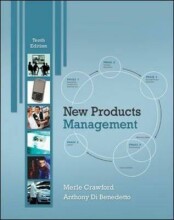Labour Relations, Fairness and Negotiations - The psychology of negotiation
4 important questions on Labour Relations, Fairness and Negotiations - The psychology of negotiation
The differentiation-before-integration principle:
Cognitive heuristics principle:
Social motive principle:
- Higher grades + faster learning
- Never study anything twice
- 100% sure, 100% understanding
The moody negotiator principle and the emotion-as strategic-information principle:
- Emotion: One’s counterpart’s emotions provide information that strategic implications, and which is used as such provided that there is sufficient motivation
- Moody: Angry negotiators are more likely to play tough and to make small concessions, than are sad negotiators who are more evasive and happy negotiators who easily make concessions
The question on the page originate from the summary of the following study material:
- A unique study and practice tool
- Never study anything twice again
- Get the grades you hope for
- 100% sure, 100% understanding






























